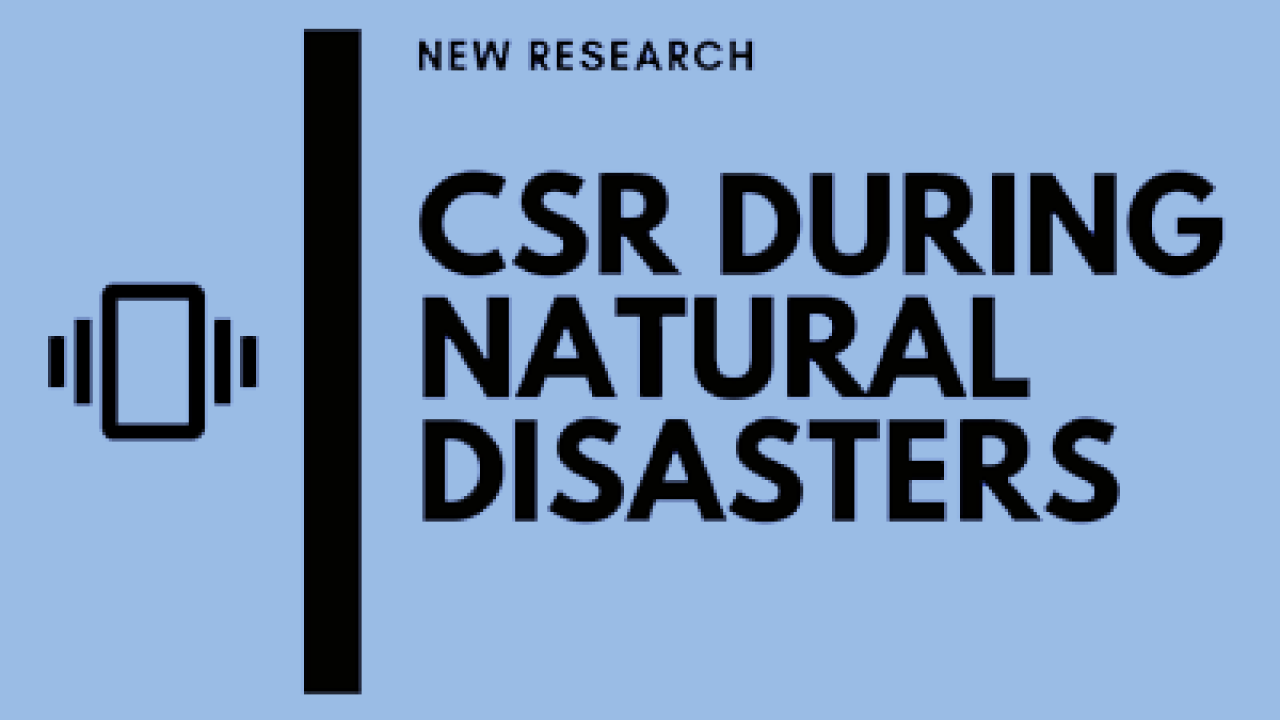January 09, 2019
After natural disasters, authenticity via mobile devices is vital for companies

When a natural disaster strikes, it’s wise for companies to engage stakeholders with useful and timely information on their mobile devices. If the messages have a clear purpose, they may foster positive, authentic relationships with publics.
Two studies examined how public perceptions of companies are affected when the organizations share corporate social responsibility (CSR) initiatives on mobile devices. The researchers surveyed individuals in both the United States and China who were affected by a natural disaster. They found that companies could build trust by reaching publics through their mobile devices, but they must provide helpful messaging that is valuable and be transparent about their motives.
“If a disaster is coming, in this case a hurricane or earthquake, people will be motivated to use their mobile devices,” said Yang Cheng, assistant professor of communication at North Carolina State University and the studies’ lead author and principal investigator. “It could be collecting donations, recruiting volunteers or providing health care…we want to see how users perceive these CSR motives.”
“Use social media and mobile devices to provide useful information, but it must have a clear purpose for the public good. That is when you can nurture meaningful and authentic relationships with consumers." -- Yang Cheng
Survey research was conducted for each study. One of the studies, published in the International Journal of Communication, surveyed 589 Chinese individuals affected by a 2017 earthquake. The other study, published in the International Journal of Strategic Communication, surveyed 1,433 Americans affected by Hurricane Harvey that same year. Cheng said the goal is to publish a third study comparing the results of the United States and China studies.
“If you are a company and you want to attract people to your CSR activities, mobile devices are a very good place to start," Cheng said, “Especially with Chinese users who are more engaged with their mobile devices than people in the U.S.”
Not surprisingly, the research says a company’s authenticity influences how it’s perceived by its publics. If it appears that a company is taking part in CSR activities strictly for its own benefit, a negative relationship can emerge causing mistrust toward the company from key stakeholders.
The research also found that consumers who are more likely to seek information through social media were more likely to trust the companies sharing the information.
“Use social media and mobile devices to provide useful information,” Cheng said. “But it must have a clear purpose for the public good. That is when you can nurture meaningful and authentic relationships with consumers. Be honest and transparent and engaged in dialogue with stakeholders.”
Cheng added that organizations should make it a point to understand and value public perspectives—specially during or shortly after a crisis.
The other authors of this study are Yan Jin, University of Georgia; Chun-Ji Flora Hung-Baesecke; Massey University; and Yi-Ru Regina Chen, Hong Kong Baptist University. The research was funded by the Arthur W. Page Center’s Legacy Scholar Grant program. It was a part of the Center’s 2017 call for research proposals, which focused on digital media.
The project came in third place for “top faculty paper”at the International Communication Association’s 68th annual conference earlier this year.
